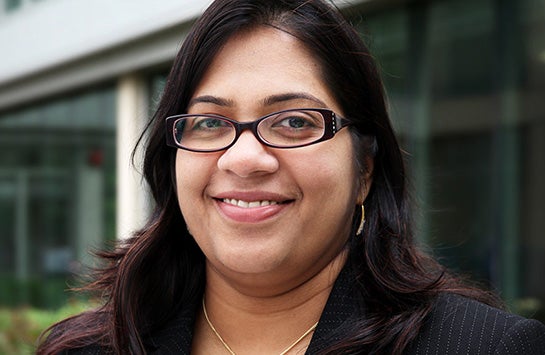Master Social Media Marketing with UIC Professor Sajna Razi
Master Social Media Marketing with UIC Professor Sajna Razi

In today’s fast-moving digital world, businesses must keep up with the latest trends to connect with online consumers. The University of Illinois Chicago’s online Master of Science in Marketing program offers students a chance to build these in-demand marketing skills through MKTG 567: Digital and Social Media Marketing. This course provides a hands-on learning experience where students create personalized digital marketing campaigns that stand out in a crowded digital space.
Leading the course is Clinical Associate Professor Sajna Razi, who also directs the Marketing Technology Hub at UIC’s College of Business. With over a decade of experience in digital and social media marketing, Professor Razi brings practical insights from her work in product and program management from around the world. In this interview, she shares her thoughts on the course structure, her teaching philosophy, and the valuable digital marketing skills students will gain, which will assist them in securing a role in the marketing industry.
What skills or concepts will students gain from your MKTG 567 course?
Throughout the course, students will learn to understand the digital and social media landscape and create omnichannel experiences. It’s not just about putting out a few ads on Instagram and TikTok. Social media marketing is about crafting the perfect omnichannel experience and connecting with consumers on a personal level. Regardless of the touchpoint, device, or platform, the brand should appear seamless and unified to the consumer. Students will gain hands-on experience in designing and implementing effective digital marketing strategies using the latest technologies, ensuring strong ROI across all digital and social media touchpoints.
How is this digital marketing course structured, and what can students expect each week?
The course is laid out over eight weeks, and each week, we focus on a different aspect of digital and social media marketing. We start by understanding the digital landscape and how to build an omni-channel consumer experience. You’ll learn to craft personas, analyze consumer journeys, and explore touch points. Then, in week two, we dive into digital strategy and consider how to engage consumers across multiple channels.
From there, we cover other digital marketing skills like website design, Google Analytics workshops, and SEO best practices. We also explore social media strategy, content creation, influencer partnerships, digital advertising, and email marketing. I designed the course to be hands-on, including simulations, workshops, and projects. Students earn certifications along the way, like the AI in Google Shopping certificate. Each week, we have a live session where we discuss current industry trends. It’s a great way to apply what we learn and stay up to date with the fast-changing marketing landscape. By the end of the course, students put it all together and build a comprehensive digital marketing plan. It will encompass everything from organic and paid strategy to budgeting.
What is your teaching philosophy, and how do you integrate your industry experience into your course?
I firmly believe that you have to do something to really learn it. I come from an industry background in product and program management, working across countries like Japan, India, Europe, and the U.S., so I bring those real-world experiences into the classroom.
I designed the course based on what the industry is looking for. I stay connected through partnerships and projects, which helps me understand what skills are in demand. Then, I create a dynamic learning experience for students, including hands-on activities, simulations, and case debates. For example, one week, we might debate the effectiveness of a Super Bowl ad, while another week, we’ll analyze a recent influencer marketing strategy. It’s all about learning by doing.
What current trends do you notice in the marketing field, and how does the course address them?
The digital marketing world is constantly changing. One major trend I’m noticing is how companies are focusing on retaining their existing customers. They’re investing in making sure loyal customers feel valued, which means a lot of personalized outreach. You’ll see brands using everything from emails to social media DMs to stay connected.
This course covers how brands build these customer retention strategies using data-driven insights. You’ll learn how to create personalized campaigns and track their performance using analytics. Since the landscape constantly evolves, we talk a lot about the latest industry trends and challenges in our live sessions. It’s a space where students can discuss real-world scenarios and think critically about how brands adapt to market shifts.
What advice would you give prospective students considering earning a marketing degree online from UIC?
Earning an Online Master of Science in Marketing (MSM) degree from UIC offers flexibility, allowing you to balance your studies with work or personal commitments. The program is designed to equip you with practical skills in digital marketing, consumer behavior, and analytics, including the latest in Marketing Technologies with AI, making you highly competitive in the job market. You also have direct live access to world class faculty. UIC provides robust support services, including academic advising, career assistance, and connections to Chicago’s alumni network, ensuring you have the resources needed to succeed. The online format eliminates commuting time and costs, making it a convenient and cost-effective option. Lastly, UIC’s strong reputation and professional network can open doors to valuable career opportunities.